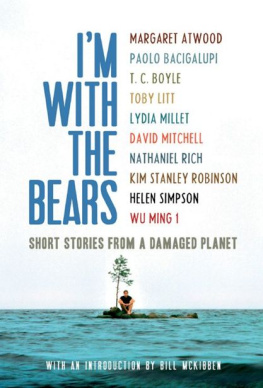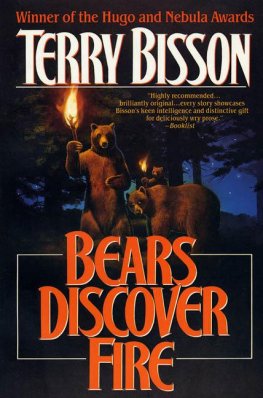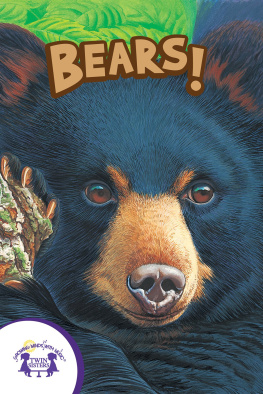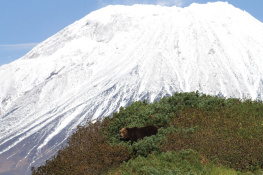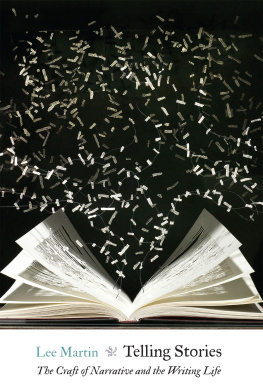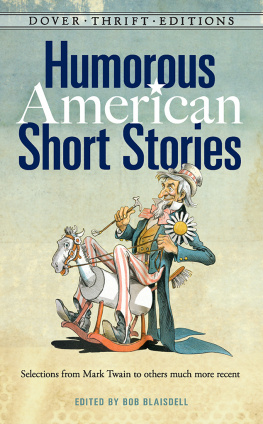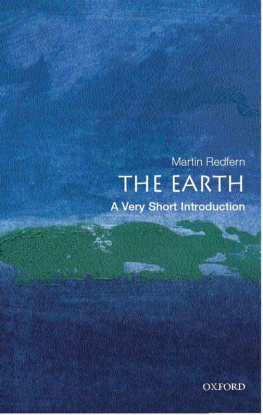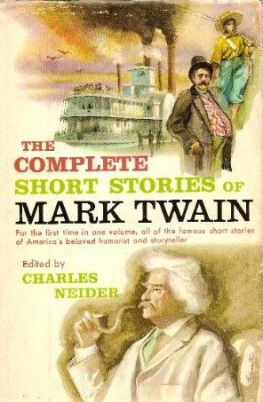Mark Martin - I’m with the Bears - Short Stories From A Damaged Planet
Here you can read online Mark Martin - I’m with the Bears - Short Stories From A Damaged Planet full text of the book (entire story) in english for free. Download pdf and epub, get meaning, cover and reviews about this ebook. year: 2011, publisher: Norton, genre: Detective and thriller. Description of the work, (preface) as well as reviews are available. Best literature library LitArk.com created for fans of good reading and offers a wide selection of genres:
Romance novel
Science fiction
Adventure
Detective
Science
History
Home and family
Prose
Art
Politics
Computer
Non-fiction
Religion
Business
Children
Humor
Choose a favorite category and find really read worthwhile books. Enjoy immersion in the world of imagination, feel the emotions of the characters or learn something new for yourself, make an fascinating discovery.
- Book:I’m with the Bears - Short Stories From A Damaged Planet
- Author:
- Publisher:Norton
- Genre:
- Year:2011
- Rating:3 / 5
- Favourites:Add to favourites
- Your mark:
- 60
- 1
- 2
- 3
- 4
- 5
I’m with the Bears - Short Stories From A Damaged Planet: summary, description and annotation
We offer to read an annotation, description, summary or preface (depends on what the author of the book "I’m with the Bears - Short Stories From A Damaged Planet" wrote himself). If you haven't found the necessary information about the book — write in the comments, we will try to find it.
Mark Martin: author's other books
Who wrote I’m with the Bears - Short Stories From A Damaged Planet? Find out the surname, the name of the author of the book and a list of all author's works by series.
I’m with the Bears - Short Stories From A Damaged Planet — read online for free the complete book (whole text) full work
Below is the text of the book, divided by pages. System saving the place of the last page read, allows you to conveniently read the book "I’m with the Bears - Short Stories From A Damaged Planet" online for free, without having to search again every time where you left off. Put a bookmark, and you can go to the page where you finished reading at any time.
Font size:
Interval:
Bookmark:



First published by Verso 2011
The collection Verso 2011
The contributions The contributors 2011
The Siskiyou, July 1989, from A Friend of the Earth by T. Coraghessan Boyle
T. Coraghessan Boyle 2000. Used by permission of Viking Penguin, a division of Penguin Group (USA) Inc.
Extract from How the Dead Dream: A Novel by Lydia Millet Lydia Millet 2008. Used by permission of Houghton Mifflin Harcourt Publishing Company. All rights reserved.
Extract from Sixty Days and Counting by Kim Stanley Robinson Kim Stanley
Robinson 2007. Used in the US by permission of Bantam Books, a division of Random
House, Inc. Reprinted in the UK by permission of HarperCollins Publishers Ltd
Kim Stanley Robinson 2007.
Diary of an Interesting Year by Helen Simpson Helen Simpson 2010.
Reprinted by permission of Rogers, Coleridge and White. Published in In-Flight Entertainment by Helen Simpson (Jonathan Cape 2010 [UK]; Vintage 2011 [US]).
Time Capsule Found on the Dead Planet reproduced with permission of Curtis Brown Group Ltd., London, on behalf of Margaret Atwood Margaret Atwood 2009.
Translation Arzstula Romy Clark 2011
Arzstula Wu Ming 1 2009
Published by arrangement with Agenzia Letteraria Roberto Santachiara
Partial or total reproduction of this short story, in electronic form or otherwise, is consented to for non-commercial purposes, provided that the original copyright notice and this notice are included and the publisher and source are clearly acknowledged.
All rights reserved
The moral rights of the authors have been asserted
1 3 5 7 9 10 8 6 4 2
Verso
UK: 6 Meard Street, London W1F 0EG
US: 20 Jay Street, Suite 1010, Brooklyn, NY 11201
www.versobooks.com
Verso is the imprint of New Left Books
eISBN 978-1-84467-830-3
British Library Cataloguing in Publication Data
A catalogue record for this book is available from the British Library
Library of Congress Cataloging-in-Publication Data
A catalog record for this book is available from the Library of Congress
Typeset in Electra by Hewer UK Ltd, Edinburgh
Printed in the US by Maple Vail
John Muir said that if it ever came to a war between the races, he would side with the bears. That day has arrived.
Dave Foreman,
Strategic Monkeywrenching
by Bill McKibben
T. C. Boyle
Lydia Millet
Kim Stanley Robinson
Nathaniel Rich
Helen Simpson
Toby Litt
David Mitchell
Wu Ming1
Paolo Bacigalupi
Margaret Atwood
The problem with writing about global warming may be that the truth is larger than usually makes for good fiction. Its pure pulp. Consider the recent pastconsider a single year, 2010. Its the warmest year on record (though not, of course, for long). Nineteen nations set new all-time temperature recordsin Pakistan, in June, the all-time mark for the entire continent of Asia fell, when the mercury hit 128 degrees.
And heat like that has Technicolor effects. In the Arctic, ice melt galloped alongboth the northwest and northeast passages were open for the first time in history, and there was an impromptu yacht race through terrain where even a decade before no one had ever imagined humans being able to travel. In Russia, the heat rose like some inverse of Dr. Zhivago; instead of the Ice Palace, huge walls of flame as the peat bogs around Moscow burned without cease. The temperature had never hit a hundred degrees in the capital but it topped that mark eight times in August; the drought was so deep that the Kremlin stopped all grain exports to the rest of the world, pushing the price of wheat through the roof (and contributing at least a portion to the unrest that gripped countries like Tunisia and Egypt).
And in Pakistan? Oh good God. Heres how it works: warm air holds more water vapor than cold, so the atmosphere is about four percent moister than it was forty years ago. This loads the dice for deluge and downpour, and in late July of 2010 Pakistan threw snake eyes: in the mountains, which in a normal year average three feet of rain, twelve feet fell in a week . The Indus swelled till it covered a quarter of the nation, an area the size of Britain. It was the first of at least six mega-floods that stretched into the early months of 2011, and some were even more dramaticin Queensland, Australia a landscape larger than France and Germany was inundated. But Pakistanoh good God. Six months later four million people were still homeless. And of course they were people who had done literally nothing to cause this cataclysmthey hadnt been pouring carbon into the atmosphere.
Thats our jobthats what we do in the West. And its why a book like this is of such potential importance. Somehow we have to summon up the courage to act. Because heres the math: everything that I described above, all the carnage of 2010, comes with one degree of global warming. Its a taste of the early stages of global warmingbut only the early stages. Scientists tell us with robust consensus that unless we act very soon (much sooner than is economically or politically convenient) that one degree will be four or five degrees before the century is out. If one degree melts the Arctic, put your poetic license to work. Your imagination is the limit; as one NASA research team put it in 2008, unless we reduce the amount of carbon in the atmosphere quickly, we cant have a planet compatible with the one on which civilization developed and to which life on earth is adapted.
So far our efforts to do anything substantial about that truth have been thwarted, completely. The fossil fuel industry has won every single battle, usually with some version of this argument: doing anything about climate change will cause short-term economic pain. And since we can understand and imagine the anguish of short-term economic pain (think of the ink spilled, and with good reason, over the recession of the last few years) we make it a priority. Since global warming seems, almost by definition, hard to imagine (after all, its never happened before) it gets short shrift. Until that changes, well take none of the actions that might ameliorate our plight.
And here science can take us only so far. The scientists have done their jobtheyve issued every possible warning, flashed every red light. Now its time for the rest of usfor the economists, the psychologists, the theologians. And the artists, whose role is to help us understand what things feel like. These stories are an impressive start in that direction, and one shouldnt forget for a moment that they represent a real departure from most literary work. Instead of being consumed with the relationships between people, they increasingly take on the relationship between people and everything else. On a stable planet, nature provided a background against which the human drama took place; on the unstable planet were creating, the background becomes the highest drama. So many of these pieces conjure up that world, and a tough world it is, not the familiar one weve loved without even thinking of it. Those are jolts we dearly need; this is serious business were involved in.
But to shift, of course, the human heart requires not just fear but hope. And so one task, perhaps, of our letters in this emergency is to help provide that sense of what life might be like in the world past fossil fuel. Not just a bleak sense, but a bright one; a glimpse of what a future might look like where community begins to replace consumption. Its not impossibly farfetchedeven in the desperate last decade, the number of farms in the U.S. rose for the first time in a century and a half, as people discovered the farmers market, and as a new generation started to learn the particular pleasures and responsibilities that most of mankind once knew on a daily basis; in that sense, weve had writers like Wendell Berry who have been working this ground for a long time.
Font size:
Interval:
Bookmark:
Similar books «I’m with the Bears - Short Stories From A Damaged Planet»
Look at similar books to I’m with the Bears - Short Stories From A Damaged Planet. We have selected literature similar in name and meaning in the hope of providing readers with more options to find new, interesting, not yet read works.
Discussion, reviews of the book I’m with the Bears - Short Stories From A Damaged Planet and just readers' own opinions. Leave your comments, write what you think about the work, its meaning or the main characters. Specify what exactly you liked and what you didn't like, and why you think so.

